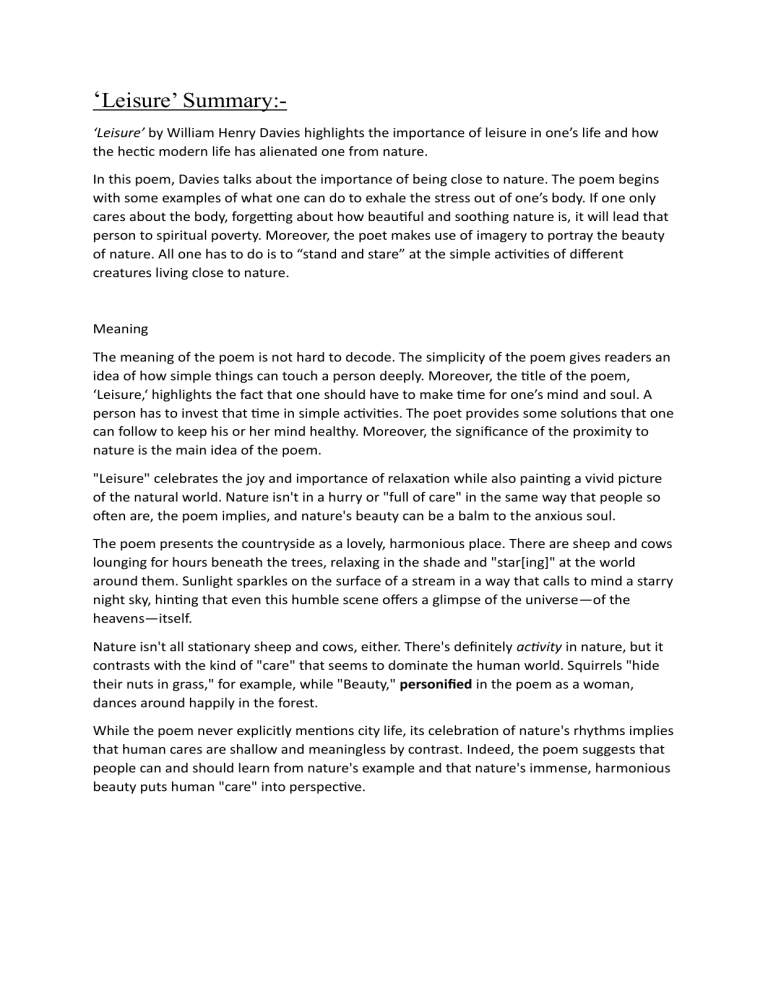
‘Leisure’ Summary:‘Leisure’ by William Henry Davies highlights the importance of leisure in one’s life and how the hectic modern life has alienated one from nature. In this poem, Davies talks about the importance of being close to nature. The poem begins with some examples of what one can do to exhale the stress out of one’s body. If one only cares about the body, forgetting about how beautiful and soothing nature is, it will lead that person to spiritual poverty. Moreover, the poet makes use of imagery to portray the beauty of nature. All one has to do is to “stand and stare” at the simple activities of different creatures living close to nature. Meaning The meaning of the poem is not hard to decode. The simplicity of the poem gives readers an idea of how simple things can touch a person deeply. Moreover, the title of the poem, ‘Leisure,‘ highlights the fact that one should have to make time for one’s mind and soul. A person has to invest that time in simple activities. The poet provides some solutions that one can follow to keep his or her mind healthy. Moreover, the significance of the proximity to nature is the main idea of the poem. "Leisure" celebrates the joy and importance of relaxation while also painting a vivid picture of the natural world. Nature isn't in a hurry or "full of care" in the same way that people so often are, the poem implies, and nature's beauty can be a balm to the anxious soul. The poem presents the countryside as a lovely, harmonious place. There are sheep and cows lounging for hours beneath the trees, relaxing in the shade and "star[ing]" at the world around them. Sunlight sparkles on the surface of a stream in a way that calls to mind a starry night sky, hinting that even this humble scene offers a glimpse of the universe—of the heavens—itself. Nature isn't all stationary sheep and cows, either. There's definitely activity in nature, but it contrasts with the kind of "care" that seems to dominate the human world. Squirrels "hide their nuts in grass," for example, while "Beauty," personified in the poem as a woman, dances around happily in the forest. While the poem never explicitly mentions city life, its celebration of nature's rhythms implies that human cares are shallow and meaningless by contrast. Indeed, the poem suggests that people can and should learn from nature's example and that nature's immense, harmonious beauty puts human "care" into perspective.



